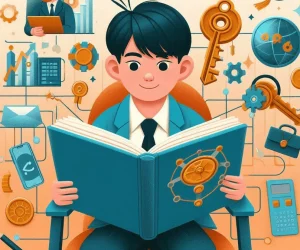Never underestimate the benefits of a good education. Thomas Jefferson would have hit the nail right on the head if instead of putting, “Life, Liberty and the Pursuit of Happiness” in the Declaration of Independence, he instead penned the words, “Life, Liberty and the Pursuit of Health and Education.”
Education, health and happiness are inextricably linked, according to an increasing number of studies pointing to a direct connection between education and quality of life. A conversation about quality living would most assuredly have to include references to strength, stamina, vigor… all by-products of good health.
The highway of education is paved with a fundamental and far-reaching approach to learning that forges knowledge in a variety of subjects, including health. Once you have the knowledge, it then becomes much easier to make the right decisions throughout life about health and everything else.
“Knowledge is power,” wrote author Veronica Roth. Knowledge opens doors, breaks down barriers and levels the playing field. Without it, we wander through life unaware of the possibilities around us and unsure of the decisions in front of us. With it, we are able to recognize the good and bad in things and make decisions based on observation, intelligence and informed judgment.
After learning about the concept of healthy living, and as happens with many of life’s daily responsibilities when accompanied by knowledge, a process of education ignites within us. Because our brain has absorbed information important for being healthy, we begin the process of learning how to be healthy. The cycle continues.
To answer the questions introduced from this new awareness, we then focus on those things which help us accomplish our goal of achieving and maintaining wellness. Suddenly, our brain prompts our body to make the necessary adjustments which can promote a healthy lifestyle in us. In a short amount of time, health becomes something you think about more than only when you must.
Health is primarily defined as ‘a state of complete emotional and physical well-being’. Achieving optimum health and wellness is a challenge for everybody, educated or not. However, having the knowledge necessary to attain and maintain good health, is a perfect example of how learning can positively affect every aspect of your daily existence.
Dr. Seuss had it right, “The more you read, the more things you will know. The more things you learn, the more places you’ll go.”
Ideally a life-long process, learning stimulates the brain, triggers a physical response, and helps to identify almost unlimited avenues of education. Education, in turn, creates a foundation for life which translates, almost unconsciously, across limitless aspects of life, including health and wellness.
Numerous studies have established the importance and long-term benefits of early childhood education on a person’s well-being. According to the Economic Opportunity Institute, “Early childhood learning plays a crucial role in primary education. By focusing early in childhood on prevention and protective factors, quality care and information can help children to grow up healthy.”
The report went on to state, “… quality early learning and care before the age of five has found it is associated with improvement in a range of educational and social measures, some of which have been documented many years after the care.”
While it has been proven that genetic characteristics structured in our DNA do certainly play a role in health and longevity, addressing the core issue of education – early and continued engaged learning – can provide a wide array of positive benefits for the brain, the body, and for society in general.






More Stories
How the Best Educational Apps for 5 Year Olds Inspire Smart and Happy Learners
How to Empower Elementary Children with Confidence and Joy in Education
Why Teaching Programming to Children Is Essential for the Future